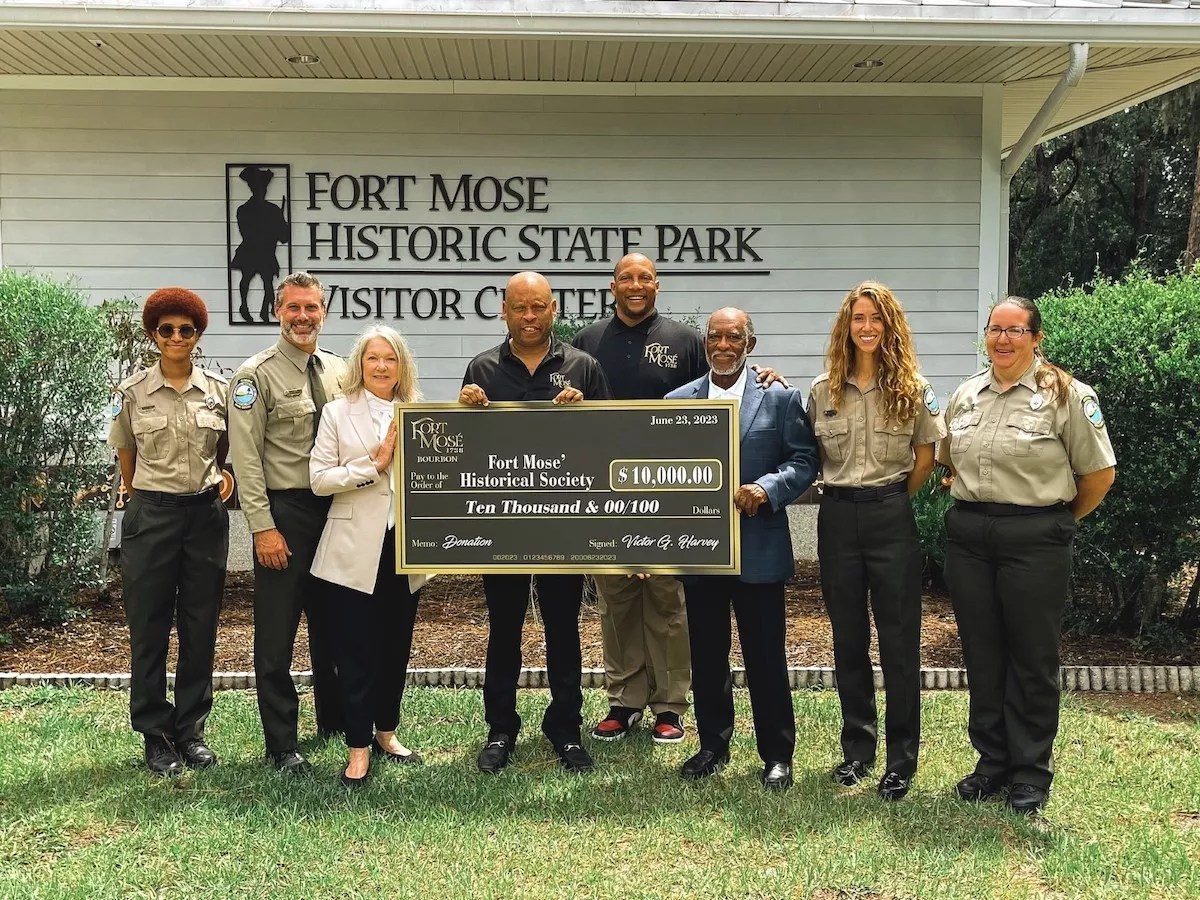
Courtesy Victor George Spirits

Audio By Carbonatix
What do a Fort Lauderdale-based craft spirits maker and a globally renowned cognac purveyor have in common? Hardly anything, really – the companies have never crossed paths.
That is, until now.
The worlds of Victor George Spirits (VGS), which manufactures Fort Mosé 1738 bourbon whiskey out of Fort Lauderdale, and French-founded Rémy Martin, which manufactures Rémy Martin 1738 Accord Royal cognac, have collided due to their usage of the year “1738.”
According to Victor Harvey, founder and CEO of VGS, his company’s attorneys first received notice from E. Remy Martin & Co. in November 2023 that the company was objecting to the use of the year 1738 on its Fort Mosé bourbon bottles.
The issue brings about a question: Can you really trademark a year?
“This originally came as an utter surprise,” Harvey tells New Times. “I’m not an attorney, but I’ve never known you could trademark an entire year as part of a trademark. We 100 percent chose the year 1738 because of its significance to Black people in America…it was the first year in this country where Black people could live free in some regard. That’s our sole reason for using it.”
His reasoning dates back even further. Back in 1726, more than three dozen enslaved people escaped Charleston, South Carolina, and ventured south to Spanish-occupied Florida.
After enduring a treacherous journey, they arrived in St. Augustine. More and more slaves began escaping after that, ultimately establishing the very first Underground Railroad. The escaped people joined the Spanish and natives in Florida to fight against their English enslavers. After winning the war, the governor of Florida rewarded the formerly enslaved people with their own town, Fort Mosé, in 1738.
Fort Mosé became the first town in America that allowed Black people to live free.
“When I started researching a name for our bourbon, I wanted something related to Florida and something related to Black people,” says Harvey. “Sadly, the story of Fort Mosé had never really been told. It was not only an opportunity for a great name, but to get the story out there and do our part of telling some history.”

Victor George Spirits makes a ,000 donation to the Fort Mosé Historical Society in June 2023.
Courtesy Victor George Spirits
As part of the Fort Lauderdale company’s commitment to Fort Mosé’s history, it pledged to donate a dollar from every bourbon bottle sold in its first year to the Fort Mosé Historical Society. In June 2023, VGS gave $10,000 to the St. Augustine-based nonprofit, which will go toward building a replica of the fort as well as funding educational programming.
According to Harvey, since the bourbon launched in June 2022, the bourbon whiskey has been VGS’ top seller and is available in ten states.
Harvey says the company plans to release its first rye whiskey in February to kick off Black History Month and its first tequila in June. VGS’ portfolio also includes Victor George vodka and a caramel-flavored vodka.
The company plans to open a new distillery within the next 18 months along Sistrunk Boulevard in northwest Fort Lauderdale’s historic Black neighborhood, Sistrunk.
As for Rémy Martin, a representative of the brand notes that the company “will not comment on legal matters.”
According to its website, Rémy Martin’s 1738 Accord Royal cognac bears the year because it “commemorates the reward of excellence bestowed on Rémy Martin by King Louis XV in 1738.” Notably, Rémy Martin has several prominent Black brand ambassadors, including Usher, and “1738” is the title of a 2023-released song by rapper Fetty Wap.
Amid the ongoing legal battle, Harvey doesn’t plan to budge. As of January 23, the companies have yet to come to an agreement.
“I’m the type of businessman who stands on principle, and, in our opinion, we’ve done everything absolutely right here,” Harvey concludes. “We have a very significant reason to use this year as part of our brand, and this story will always be bigger than us.”